Interview with Olaf Boswijk
Author: Jonáš Verešpej
The talks, presentations and discussions dedicated to the sustainability of club culture planned for the upcoming Gravity events will also be partially spreading online – to our website Journal. Preceding the events we will be publishing stand-alone articles connected to the selected topics as well publishing recordings of the live discussions after the events.
As the founder of Amsterdam’s iconic venues Trouw and De School, Olaf Boswijk has undoubtedly left a long lasting imprint on the city's music scene and club culture in general. After leaving Netherlands to travel across Americas for 3 years he settled in Chile, where he co-founded Valley of The Possible – an art residency inviting creatives from all over the world to come to the valley and reconnect with nature through various art practices. We had an extensive conversation with Olaf over WhatsApp about his current and former activities, and the links between them.
I am reaching out to you across the ocean right now. Can you tell me where exactly are you?
I am sitting in my car on a remote gravel road surrounded by forest and mountains a few km from my house. Had to drive here to get a signal as there was a power cut at the house and so no internet. This happens a lot here! We only had satellite internet installed last week because there is no phone signal there. I am in the south of Chile by the way 😂 In a region called Wallmapu.
That’s Cañon del Blanco, somewhere under the southern Chilean Andes if I am correct? Can you please explain how you ended up there?
Yes, correct. We passed through here a few years ago when I was traveling from Canada to Patagonia with my wife Mirla in our camper. We fell in love and started to dream about doing something here. That was the start of us being here.
So it wasn't planned to look for a place to fall in love with?
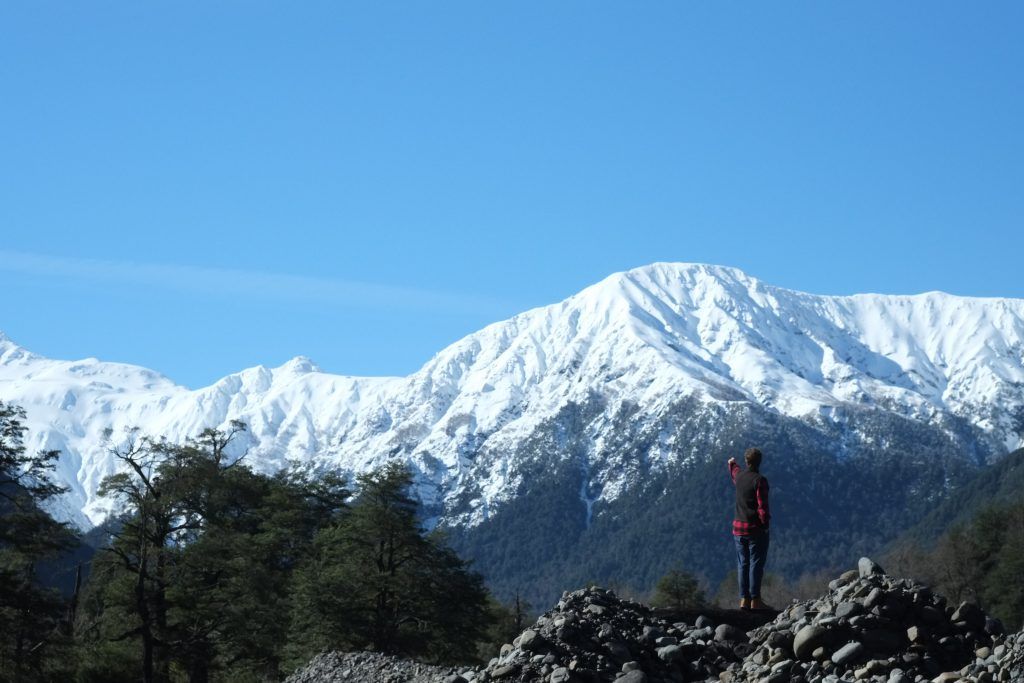
Well, we were always open to another adventure. We had an idea and we had our eyes and hearts open and were willing to spend time to see if it could work. Since I was a young boy I always felt there was more than the Netherlands and I always dreamt of living somewhere else for a while. Especially in the mountains!
Why exactly have you stopped where you've stopped, after your travels? What did you find there that you fell in love with? How was the idea for the Valley of the Possible residency born?
We had read and heard about these amazing hot springs that were open during the night. We had spent two frustrating weeks in Santiago in mechanic shops and drove down south to find this national park called Conguillío and these hot springs. It was raining really hard, we were dirty and the hot springs were really what we needed.
The next morning we woke up and saw the surrounding mountains and Sierra Nevada volcano covered in snow. There was this instant energy and attraction.
For our residency idea my wife Mirla was also looking at maps at the backsides of national parks, where there would hopefully be less touristic development and more space to really connect to nature. The Cañon del Blanco is that. Hidden and tucked away in a dead end valley, in between various national parks and at the base of a dormant but impressive volcano.
The idea for Valley of the Possible was born along our travels. We had time and space to reflect on our previous lives. We read and researched a lot but most of all we hiked and camped whenever we could in nature, in national parks. We started to discover how many artists and cultural institutions were engaging more and more with topics surrounding ecology, climate change, indigenous cultures and how the arts have a strong potential and responsibility to bring another awareness to society, not coming from science, politics or media.
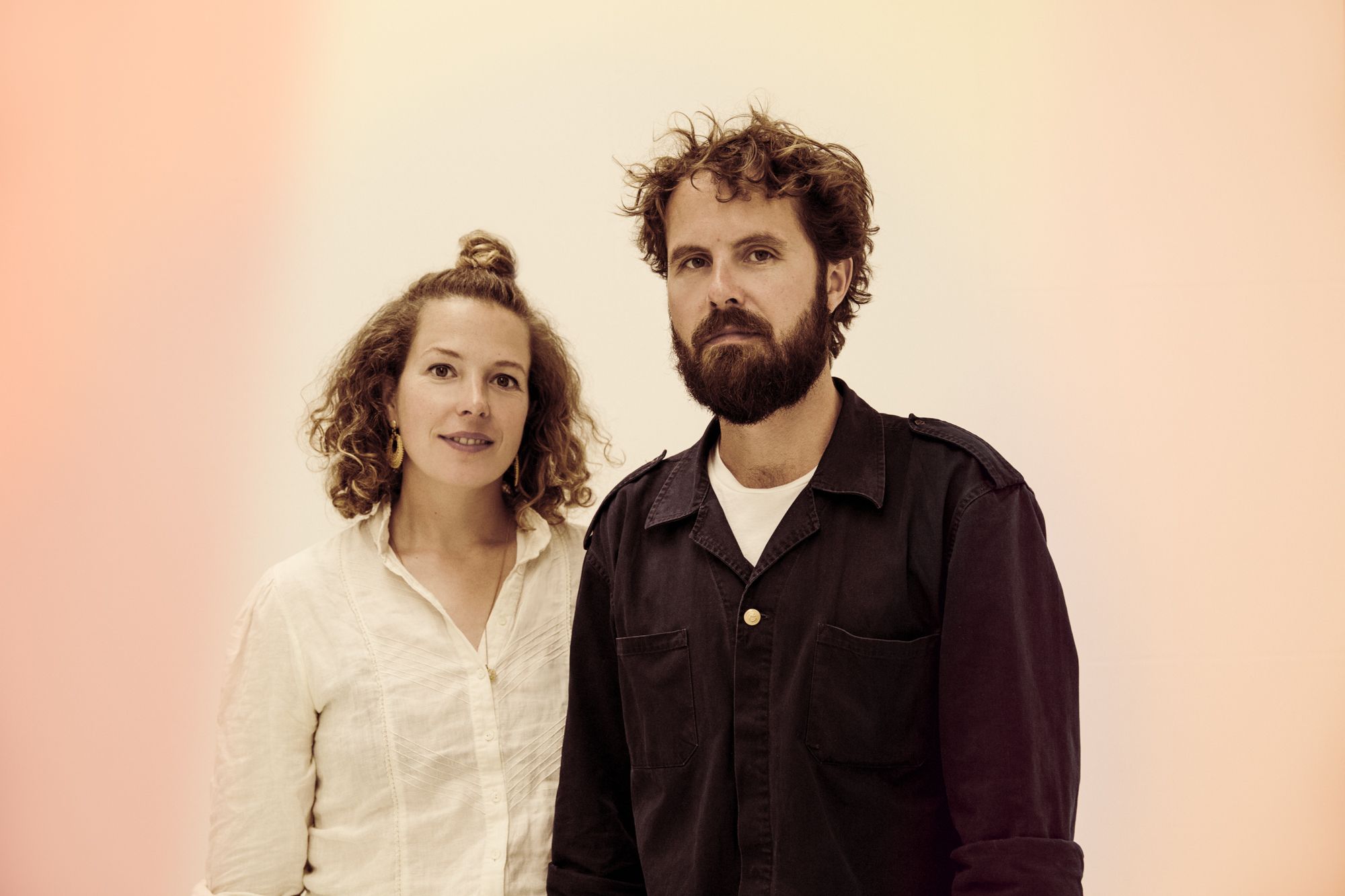
Mirla & Olaf
So after finishing traveling we drove back to the Cañon, camped here for months. Writing our plan, looking for land, building a network of relationships. In 2019 we started a pilot residency. We wanted to test our idea first and see if it could work.
Do you see that as a complete departure from what you've been doing before? Is there a parallel between organising an art residency and running a nightclub?
Both. I completely understand people that think I took a hard, and maybe for them surprising, turn to the left :) But if you know me and what I have been passionate about all my life, I think it is not surprising at all. It is closer to myself than anything else I have done.
And yes, there are many parallels: creating a new organisation is almost always based on good relationships and a resilient network, almost an ecosystem which needs many different actors and disciplines to flourish.
I have been fortunate to be able to draw from previous experience back in NL. That said, these are different times. And although VOTP has a strong network and wonderful board of directors and advisors, I don’t have the luxury of many full time working colleagues that I used to be able to fall back on in Amsterdam. And this is Chile, a different continent, a different culture, other things apply here.
So it’s also the most challenging project I’ve ever done 😅 And due to covid and becoming a father and other personal things, VOTP has been in standby mode for the last 1,5 year.
Have the locals accepted you and VOTP? How did they regard your arrival and your activities?
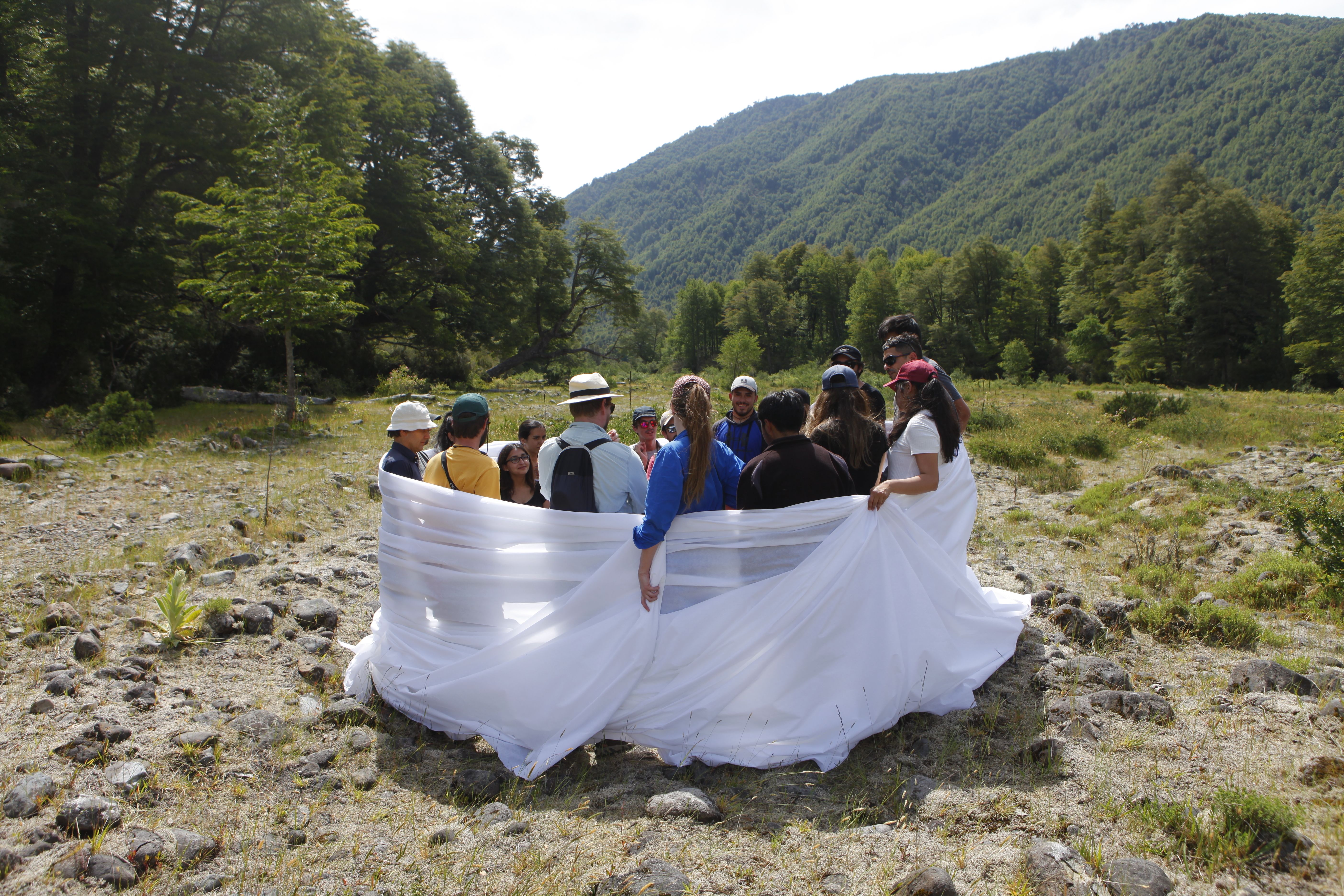
Architecture studio Cookies with ARCA/FAAD students visiting the valley, researching the relation between space making and the site.
Good question, also hard to answer. VOTP doesn’t have a physical space or presence yet, so I don’t think many of our neighbours are aware of it (yet). In the nearby village people know us and some of them know about the project. We get a lot of support and good reactions, especially also from the more urban and culture oriented people in Santiago or the nearest big town Temuco. A lot of people here on the campo (countryside) don't really know about artist residencies or how art relates to ecology and nature.
That is one, amongst others, of the main challenges: how can we have a positive social and environmental impact here locally? How can we be active with our hands in the soil and doing something that the local communities need? It’s not hard to get the support from the art and cultural elites in Amsterdam or Santiago, most of them understand the relevance and urgency.
Maybe that is exactly the way to show people not acquainted with arts that it can be actually beneficial, while bringing the art world, so far often disconnected from nature, to get its hands 'dirty'.
Yes exactly. The common definition of art is quite narrow and even commercial. Where is the culture in agri-culture for example? How can we be regenerative instead of extractive? We don’t have these answers but VOTP serves as a safespace to ask those questions and investigate them. We are starting our own permaculture garden here and hope to start planting native forest in the coming years.
Before the pandemic you did the first round of residencies, and I suppose the second one is in the making. How did the first one turn out and what was it about? How do you structure it, how do you choose artists you invite?
The second was supposed to happen in April 2020, exactly when the pandemic hit. It was postponed twice now and is supposed to happen next month but as Chile was very hesitant and strict about reopening the borders, we had to postpone again. With two weeks to go, there is not enough time for us to anticipate and organize the program well and for the artists to prepare themselves. Very very frustrating!
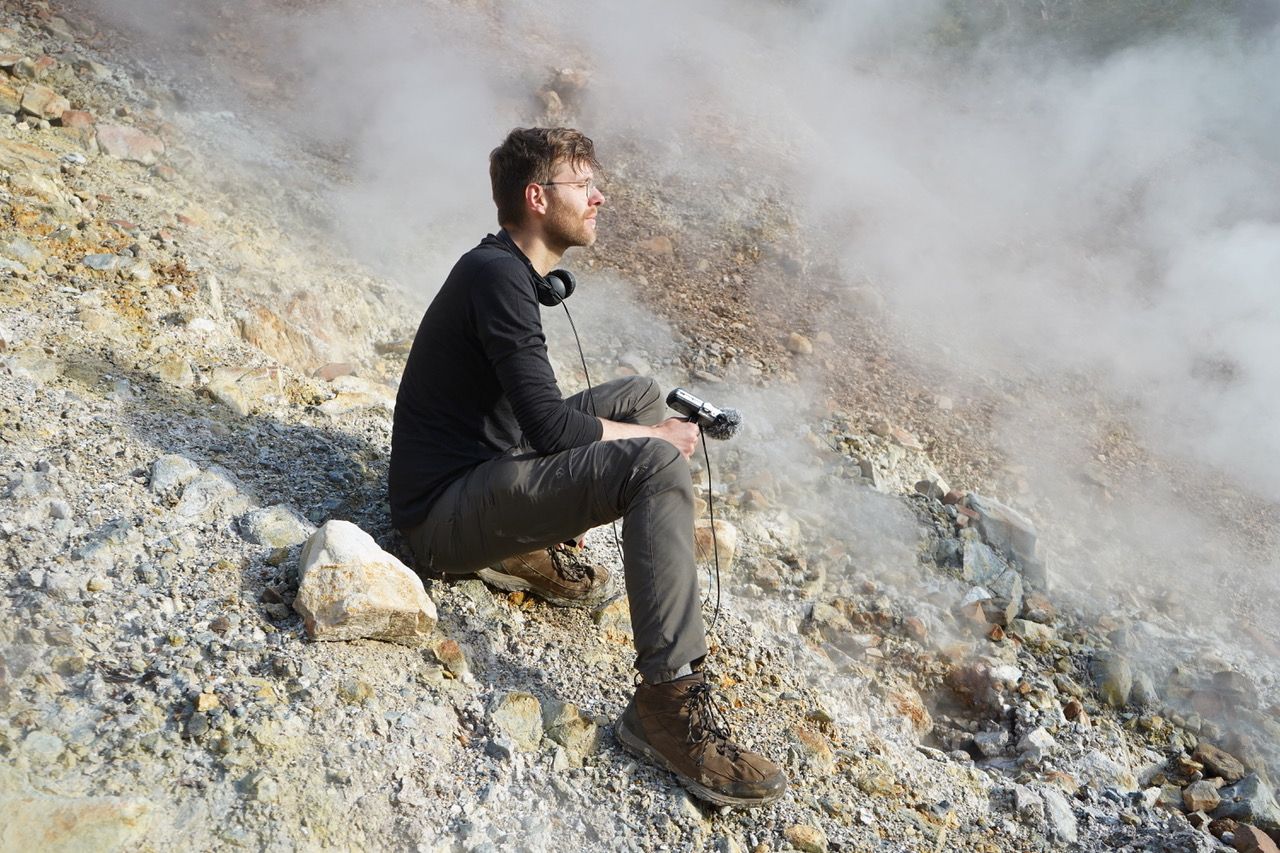
Mark IJzerman, one of the first residency participants.
The first one was amazing! I still think about that group a lot. They are all amazing people and very professional and talented artists that have developed a lot since then. We are also all still in touch. The bonds that were created during those 4 weeks are very strong.
We published an open call and spread it online, through social media, art/science/university networks and were surprised how many and high quality applications we got. Then together with our board and curator we made a selection, trying to have a diverse group in terms of age, gender, disciplines, a mix of latin american and other artists.
The first one was really about exploring this valley and its surroundings at different levels: ecological, social, historic, cultural etc. We must understand and know this place first before we can physically start or build here. We don’t want to be oblivious gringos that just land and colonize as has happened many times before us.
Wallmapu is an incredibly beautiful and special place but is also troubled by a lot of trauma, violence and poverty which all stems from the fact that it is indigenous Mapuche territory which the Spanish and later the Chileans (with help of European settlers) have colonized with violence and oppression. So as white Europeans we have to be very conscious of all this history and the responsibility we have in this moment in time.
I think it's the most important thing to bear in mind: be respectful towards the environment you're entering. Which reminds me of the critique Dekmantel has been receiving lately, and which might be a good segue to the topic of club culture.
Oh yes, in every aspect of our lives, whether it is cultural or environmental or social or economic: be aware of where you are and in which ways you are connected to others, both human and non-human. Far and close, etc. You have to be a little bit curious, to know where you are and to ask yourself that question: how do I or my organisation relate to this environment?
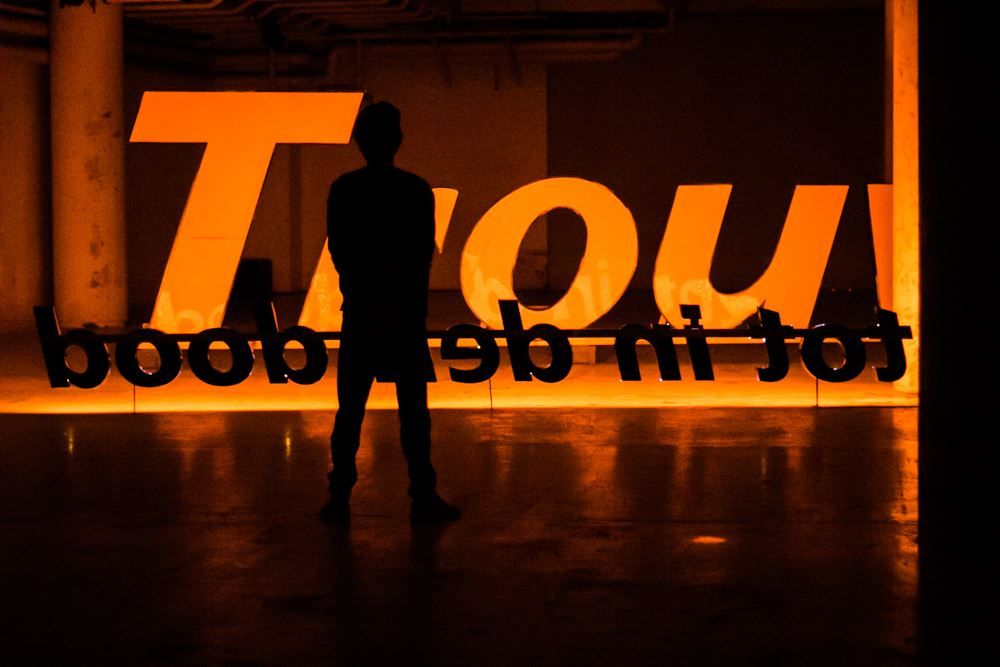
Rayyane Tabet’s installation ‘Here Today Gone Tomorrow’ exhibited at Trouw as a part of the series ‘Trouw invites…’.
Was this the way you approached creating Trouw or De School for example? Or is that something you've learned along the way?
I think in general I am curious and I thrive when working with others and I have always seen the so-called music industry/club culture whatever you want to call it as an ecosystem, which needs artists, labels, radio, media, ravers and dancers etc., to work properly. And in my career I have been part of all of those aspects as a DJ, promotor, music journalist, radio maker but this ‘ecological’ awareness has definitely deepened more here and since my travels.
At Trouw we were aware of where we were physically and socially but also at a distance with part of that neighbourhood. We were a big part of the start of that whole area gentrifying and we knew it, the landlord and municipality used us to do it.
At De School I was less involved in a hands-on and decision-making way, I was a silent partner/founder only during the first year but it became clear quickly that DS had a very specific target group in mind and did not always relate to the surrounding neighbourhood well enough.
And in short; Both Trouw and DS were in many ways ignorant of those processes and we have seen what negative impact that can have. As everyone we had the best intentions, often based on our music and cultural tastes and ‘ethics’, but that just doesn’t cut it anymore.
Both clubs were originally meant to be temporary. That has always been the most interesting aspect for me, because I grew up in a world in which everyone is trying to make their projects last forever, growing endlessly. Which we see is actually unattainable and unsustainable.
Yes and in fact, of course everything is temporary. But it's great if you can make that into your strength, embrace its implications in every aspect. And personally I have always felt: there are so many lives to be lived! I don't want to keep repeating myself.
You made it your strength I think. How did that idea come about? What was the original intention? Were there any unexpected ways in which this limit worked? It surely helps in creating buzz and excitement, but also brings some grief.
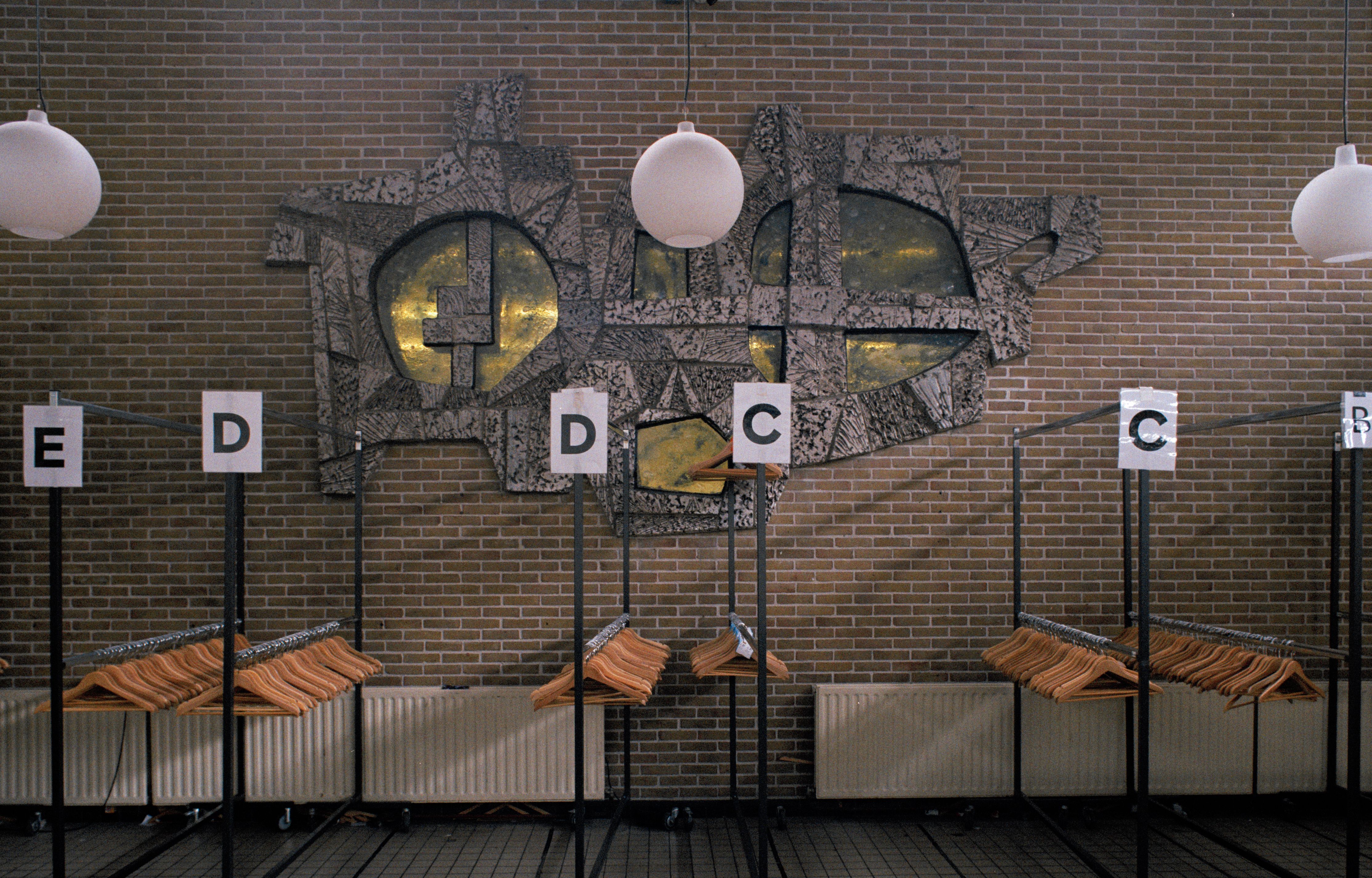
De School’s cloakroom.
It was something I learnt from my mentors and partners, my older brother Brian and his partner Koen. They had always done temporary things, stuff you would now call 'pop-up'. Traveling illegal restaurants, inviting people by sms in late '90s, stuff like that. And it was the only way we could get a lease on the buildings of 11, Trouw and De School. All of those buildings were planned to be renovated and sold off, so we proposed to use them for 1, 2 or 5 years max. The landlords and/or municipality knew our reputation by then and that we would probably do something good with them which would increase their value.
I think temporality really helped to focus our team: so you know we have only 1 or 2 years left, what do you want to add to this place to make it legendary? What are the memories you want to have? Because when we leave, all there is left is the memories and relationships. The buzz and excitement of the crowd, come and enjoy it while you can. But financially it almost drove us/me into ruins and foreclosure.
And when it ends, there will always be another party, another legendary night...
Yes, hopefully!
I guess VOTP is in its beginnings, but do you imagine a point where you'll say 'I did what I wanted to, I can move on now'? Or is that something unimaginable yet, considering the complexity of the issues you are dealing with.
Yes, I hope so! I often think of it in that way. I can't look further than 2-3 years down the line anyway, and even that is incomprehensible after the past two years in a pandemic. So let's see if we can really get the VOTP off the ground first, it is still really in its infancy and has had to deal with many setbacks during covid. But I definitely hope that one day there will be some kind of a structure that would be able to run and be easily managed by itself or by the locals.
So do you see your role as an activator, who takes an idea, gets it up on its feet, leads the people and when it's functional and working, you move onto the next project? I've noticed you offered some mentoring sessions for the public as well.
More like a connector, bringing different disciplines and aspects of life together which I see are connected but are often separated in practice. I don't necessarily have the urge or ambition to do many different 'projects'. I've never been able to run multiple projects or businesses at the same time, which at least is very common in Amsterdam if you own a bar or club. I never got that. If I am in something it demands my full attention.
Yes, the idea of mentoring sessions was born from seeing a lot of artists and creatives struggling during the pandemic. No places to physically meet, engage with each other, reflect on the difficulties of these times and their practice or personal development. I thought I might have something to offer and as I was stuck in the Netherlands, and not able to travel back to Chile and work on VOTP, it felt like something that could be fulfilling.
I have been doing a lot of private walks and talks, and still do online sessions from here with many different people. Artists, creatives, entrepreneurs, even lawyers and doctors. I try to ask questions, be curious and be present in a way that helps the others to find their own answers they already have within. To be closer to their intuition which already carries so much wisdom. Sometimes I share my own experience if I have experienced something similar, but I don't advise or tell people what to do, I don't believe in that.
Out of these sessions other opportunities have arisen for which I am doing some more consulting, with some entrepreneurs/club owners, advising them specifically about certain creative or business topics they are confronted with. The mentoring sessions are always by donation, so many people donate to VOTP. In that way they support other, mostly Latin American artists, and in the future hopefully also regenerative practices and planting of trees.
―――
Follow Olaf and Valley of the Possible on Instagram.
The conversation took place via WhatsApp on October 13th, 2021.
This interview is a preceding part of our upcoming discussion about club culture and its sustainability. The talks, panels and discussions about the subject will be involved in the educational programme of Gravity events, first of which has been repeatedly postponed due to the ongoing pandemic.


